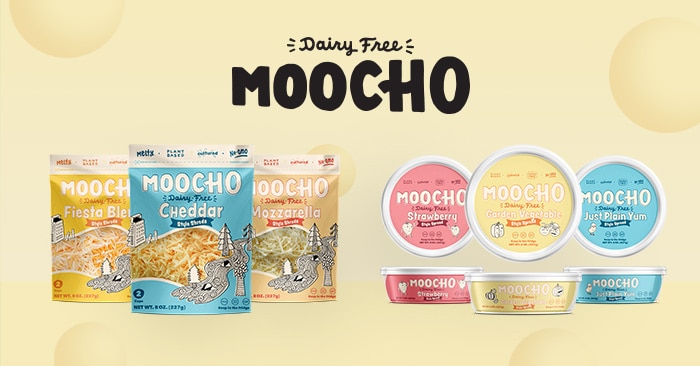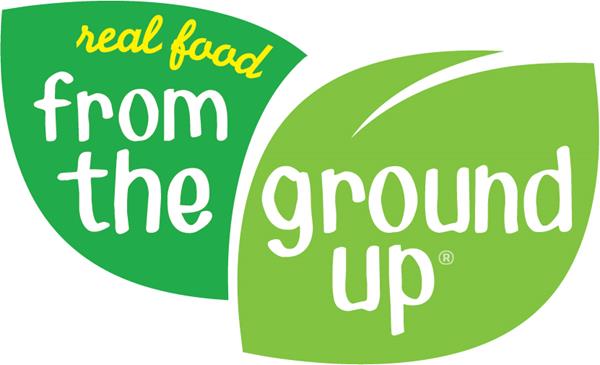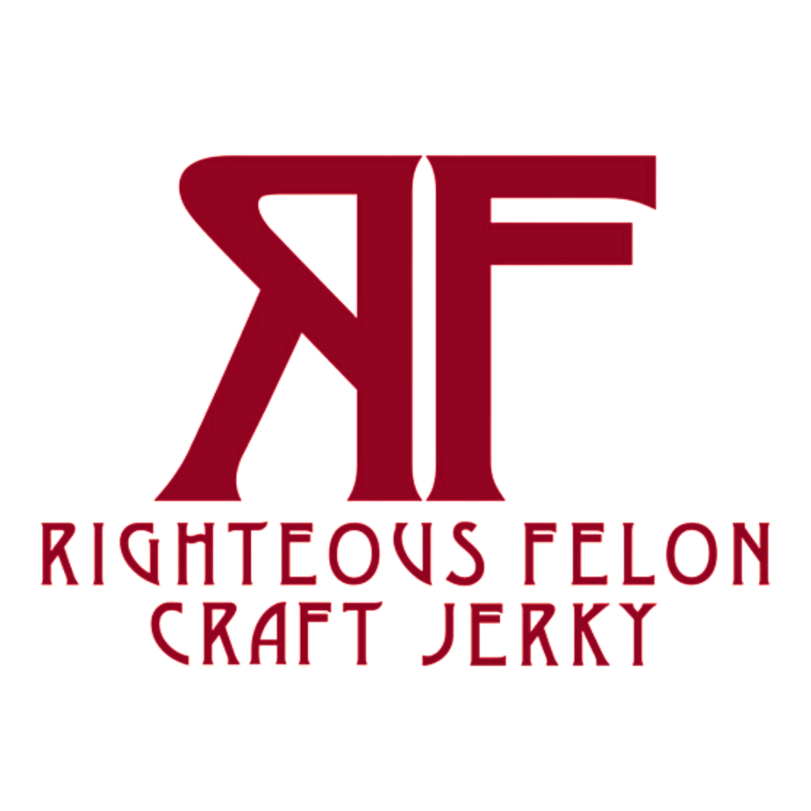Tofurky Expands Further into Plant-Based Dairy with Moocho

Having built a significant portfolio of meat-alternative offerings, Tofurky is now looking to tackle the dairy set, announcing today that sub-brand Moocho will be spun off into a more clearly independent line. To further build out Moocho’s presence on shelf, the company will also launch new dairy-free cheese shreds and dairy-free cream cheese spreads under the brand.
The shreds will launch in Cheddar, Mozzarella, and Fiesta Blend while the spreads will be available in Garden Vegetable, Plain and Strawberry. Both use a base of fava bean protein and coconut oil, with the shreds including fermented cultures and the spreads containing fermented soymilk to assist with a more “cheesy” taste.
Tofurky launched Moocho last year at Natural Products Expo West as a line of non-dairy cheesecakes. Formerly part of the company’s winter holiday meal kits, the products originally used both the Tofurky and Moocho brand names on its packaging. However, after expanding to 650 retailers including Sprouts, the company realized Moocho needed to be a standalone brand, CEO Jaime Athos told NOSH. Although the association with Tofurky may have helped draw in shoppers, he said, it also created confusion and a more “cluttered” front of pack.
“Consumers [thought] the Tofurky brand represented savory flavors and high protein meat alternatives,” Athos said. “A lot of [new shoppers] don’t really have a great understanding of what Tofurky represents or how long we’ve been around. So Moocho has to not just lean on that Tofurky relationship, it has to stand alone.”
Another reason for a new brand is that the Tofurky name — and what it stands for — may not resonate with Moocho shoppers. While consumers often turn to meat-alternatives for moral and ethical reasons, such as avoiding harming animals or minimizing environmental impact, Moocho is targeting a wider base of shoppers who cannot consume dairy for health reasons.
The new brand identity should give the company an advantage over older non-dairy brands, Athos said, which represents a fair number of cheese alternatives. In the case of many long-standing dairy-alternatives, shoppers have often already tried the products, disliked the taste, and are not apt to sample the product again, he believes. Even if these heritage brands produce better-tasting products, they then struggle with how to avoid alienating existing shoppers. For example, cheese brand Daiya now has their “original” line of shredded cheese, but also has a second “cutting board line” that more closely mimics the taste of dairy cheese.
“I like this feeling of coming in fresh,” Athos said. “We can avail ourselves of all the newest technologies to produce the best products in the marketplace without that history holding us back.”
In addition to removing the Tofurky brand, the rebranded Moocho line now has a pastel color scheme that’s in direct contrast to Tofurky’s bolder, bright packaging colors. The company also has launched a new website and social media accounts for the brand.
Tofurky has long used cheese-alternatives in its products, such as in its (now discontinued) pizzas and relaunched Pockets. The company previously self-produced the cheese in its Oregon-based manufacturing facility, but has since transitioned to a co-packer for Moocho, while still using the company’s proprietary recipes.
For now, the company has no plans to produce a non-dairy yogurt or fluid milk, but rather will focus on dairy alternatives that compliment Tofurky’s existing products — think deli meat and cheese. By doing so, Tofurky and Moocho can also offer food service locations a one-stop solution: rather than having to buy meat-analogues from one vendor and dairy-alternatives from another, restaurants can simplify with one partner.
Athos added that while buzzy plant-based burgers have proved there is interest in meat alternatives, he believes restaurants will soon want other menu options as well and Tofurky is well positioned to answer those needs.
“In reaction to the plant-based opportunity, [restaurants] all just threw a burger on the menu, but that’s not always the appropriate thing,” Athos said. “You don’t go to a sandwich place to get a burger and yet that’s that was the solution. You’re going to see some shuffling where those QSR restaurants [will] find things a little more harmonious with their offerings and that should create opportunities.”


























